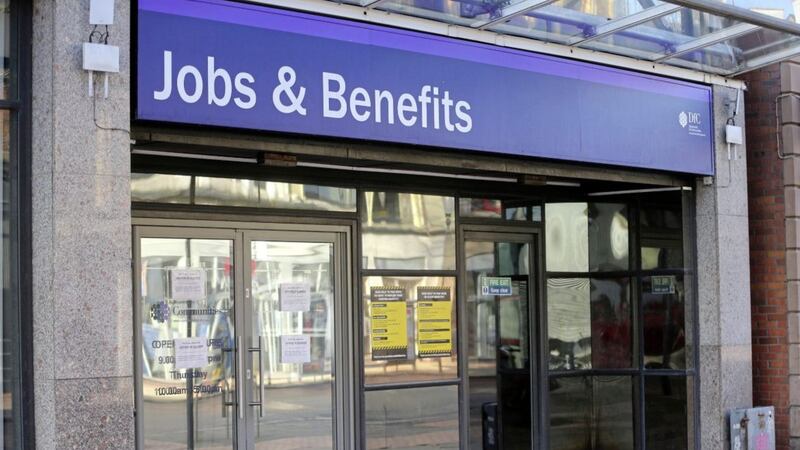It is time we dared to worry about wages instead of jobs.
Unemployment is a solved problem in Northern Ireland, as the latest labour force statistics confirm. We have had the strongest job market recovery of any UK region, with 1.3 per cent more people in work than before the epidemic.
Unemployment is the lowest in the UK while total employment is at a record high.
Before the epidemic we were sustaining an unemployment rate of 2.8 per cent, half the UK average and one of the lowest in the world.
It is difficult for people my age, of a Troubles vintage, to take these figures on board. Stormont dysfunction makes it hard for everyone to see Northern Ireland as a ferocious job-generating machine. But it should not be much of a surprise: a decade of low interest rates has left the world awash with money and full of savers desperate for any return. Even Invest NI cannot mess this up.
Pessimists say we were hiding our real unemployment as ‘economic inactivity’ - people aged between 16 and 64 neither in work nor looking for work. Our 27 per cent figure for this is 6 per cent over the national average and by far the worst in the UK. However, that gap halves to 3 per cent if students - a ‘good’ case of economic inactivity - are excluded from the comparison. The remaining gap is almost entirely due to sickness and disability, where we also have the highest figures in the UK. This represents real economic, social and public health problems but it is not a labour market problem - if our excess disability level was counted as unemployment, we should still have one of the lowest unemployment rates in the UK.
Where Northern Ireland is critically lagging is on pay. The median salary is £28,000, against a UK average of £31,000. Wages have not risen here in real terms since the 2008 financial crash and have even fallen slightly in the past few years, as rates in Britain have begun to recover. We have a particular problem with low pay: one quarter of employees here are on less than the living wage of £9.30 per hour, compared to one fifth in most UK regions and just 15 per cent in Scotland.
Thinking we need low wages to have lots of jobs is the most pernicious belief in our lingering ‘high unemployment’ mindset. It might have been true 40 or 20 years ago and must still be true beyond a certain level: we cannot all be on £50,000 a year.
But our job market has matured well beyond the point where low wages should be seen as a solution. In reality, they are a cause of our two most serious economic problems: low productivity and low growth.
Businesses do not need to invest in higher productivity while they can find plenty of staff on the minimum wage. Northern Ireland’s low economic growth, to which this is connected, is a feature of low-paying sectors, such as retail. We have strong growth in manufacturing and services, where wages are higher.
What all this means is that it is time to stop selling ourselves short and feeling cravenly grateful for low-paid employment. Although our economy cannot give everyone a skilled or professional job, at least not all at once, it could perhaps give everyone a raise. Devolving the minimum wage was agreed in New Decade, New Approach at the suggestion of Alliance. Increasing the minimum wage, even on a trial basis, would be far more realistic than the ‘basic income’ experiments Alliance and others have since gone on to propose.
New Decade, New Approach also created a Fiscal Council and Sinn Féin finance minister Conor Murphy has added a Fiscal Commission, to provide independent expert advice on economic policy and new tax powers.
Sinn Féin has previously proposed devolving employer’s national insurance, which is effectively a tax on jobs. Cutting this tax could be used to used to encourage more jobs at better wages. Why not explore this when every executive party agreed to cut corporation tax?
We are cynical about the cliché used by overseas investors that they are attracted here by the quality of our workforce rather than by its affordability. It would be extremely foolish for Stormont to pursue higher-wage policies without addressing our outdated education and training system. But our economy is strong enough to push for higher pay and we should have the confidence to do so.









